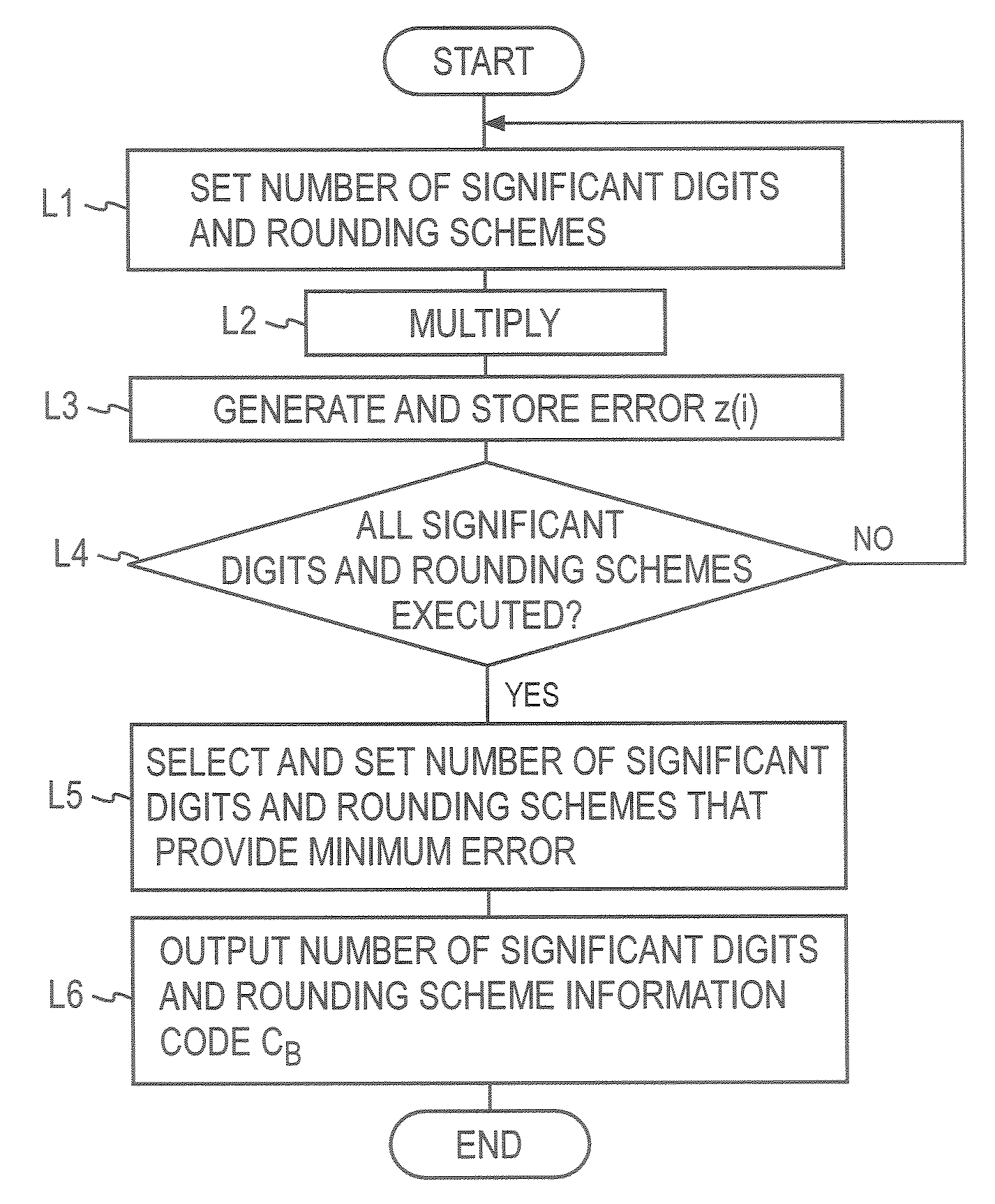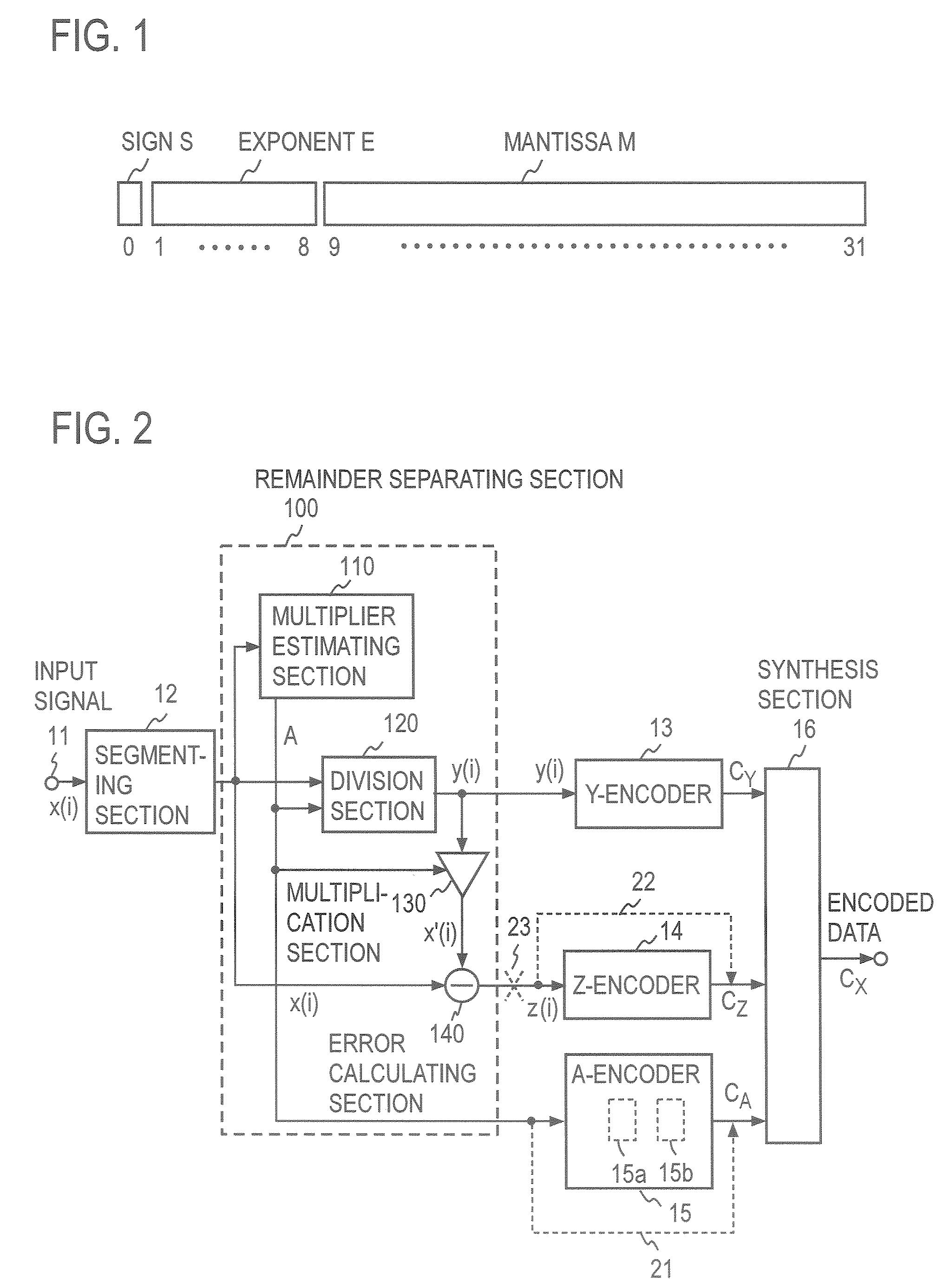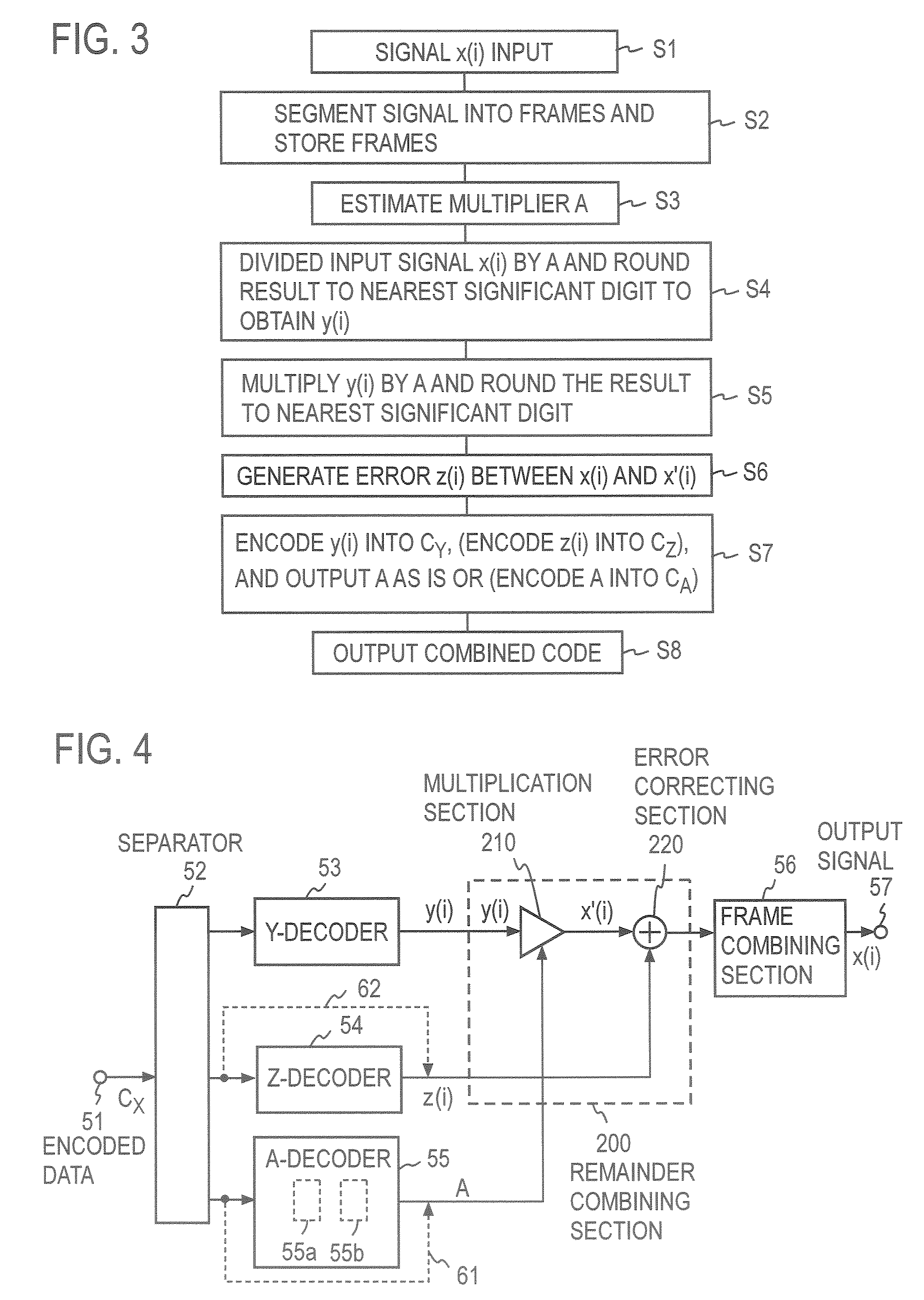Information Encoding Method, Decoding Method, Common Multiplier Estimating Method, and Apparatus, Program, and Recording Medium Using These Methods
- Summary
- Abstract
- Description
- Claims
- Application Information
AI Technical Summary
Benefits of technology
Problems solved by technology
Method used
Image
Examples
first embodiment
FIRST EXAMPLE
Coding
[0070]FIG. 2 shows an exemplary functional configuration of an encoding apparatus according to a first embodiment of the present invention FIG. 3 shows a process performed by the encoding apparatus.
[0071] When an input signal sequence X=(x(0), x(1), . . . ), which is a digitized sample sequence, is inputted t rough an input terminal 11 (step S1), it is divided into sequences consists of a predetermined number N of samples (for example 1,024 samples) in a segmenting (frame) section 12 and temporarily stored in a memory (not shown) (step S2). In the case of an audio signal, the sample sequence may be a integer sample sequence quantized by using a quantifying bit number of 24 bits or a 32-bit single-precision floating-point format sample sequence. In the case of a color video signal, the sample sequence may be a digitized sample sequence of pixel information obtained by raster scanning color information elements into which the color video signal is split.
[0072] ...
second embodiment
THIRD EXAMPLE
Quotient Signal Transformation
[0105] Another example will be described in which the amount of information of error signals z(i) is reduced by transforming quotient signals y(i). FIG. 11 shows an exemplary configuration of the relevant part used for the transformation and FIG. 12 shows an exemplary process.
[0106] The example differs from the first example (FIG. 2) in that a quotient signal y(i) obtained in a division section 120 is transformed so that the error signal z(i) outputted from an error calculating section 140 in the encoding apparatus is minimized.
[0107] For example, if y(i) is calculated to a predetermined number of significant digits in the division section 120, by rounding down or off to the significant digits, the y(i) contains a round-off error. Similarly when decoded y(i) decoded in the multiplication section 210 is multiplied by a decoded multiplier A in a decoding process in a decoding apparatus (FIG. 4), a round-off error can be produced. The seco...
fourth example
Quotient Signal Transformation
[0117] While quotient signals y(i) are transformed also in a fourth example, the fourth example differs from the third example in that a different measure for evaluation is used to determine y′(i). When a Y-encoder 13 and a Z-encoder 14 use a lossless coding scheme, y(i) is transformed into y′(i) in a transformation section 170 so that the total volume of codes CY and CZ is minimized. For example, the number of significant digits of y′(i) may be varied in a predetermined range to find y′(i) that results in the smallest total size of an output code.
[0118]FIG. 13 shows an exemplary functional configuration of the relevant part and FIG. 14 shows an exemplary process. A quotient signal y(i) from a division section 120 is inputted in a transformation section 170. First, y(i) and its corresponding error signal z(i) are individually encoded (step L21). The volume VY of code CY and the volume VZ of code CZ are added together to obtain the sum (the number of b...
PUM
 Login to View More
Login to View More Abstract
Description
Claims
Application Information
 Login to View More
Login to View More - R&D
- Intellectual Property
- Life Sciences
- Materials
- Tech Scout
- Unparalleled Data Quality
- Higher Quality Content
- 60% Fewer Hallucinations
Browse by: Latest US Patents, China's latest patents, Technical Efficacy Thesaurus, Application Domain, Technology Topic, Popular Technical Reports.
© 2025 PatSnap. All rights reserved.Legal|Privacy policy|Modern Slavery Act Transparency Statement|Sitemap|About US| Contact US: help@patsnap.com



